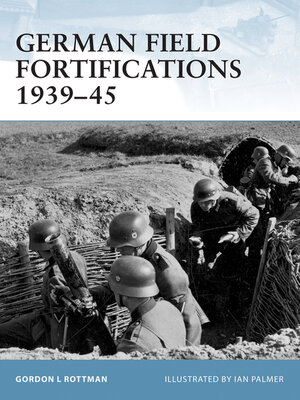
Sign up to save your library
With an OverDrive account, you can save your favorite libraries for at-a-glance information about availability. Find out more about OverDrive accounts.
Find this title in Libby, the library reading app by OverDrive.



Search for a digital library with this title
Title found at these libraries:
| Library Name | Distance |
|---|---|
| Loading... |
The German Army of World War II considered itself an offensive, mobile force.
The experiences in the trenches in World War I had done much to shape its concept of field fortification, and its mobile warfare ethos was intended to prevent the previous war's stalemate. This book addresses frontline defensive field fortifications, built by infantrymen using local materials, and includes rifle platoon positions, trenches, crew-served weapon positions, bunkers, dugouts, shelters and more.
It also covers anti-tank and anti-personnel obstacles, as well as field camouflage methods and construction methods. The integration of these positions into permanent systems and theatre-specific defences are also discussed.
The experiences in the trenches in World War I had done much to shape its concept of field fortification, and its mobile warfare ethos was intended to prevent the previous war's stalemate. This book addresses frontline defensive field fortifications, built by infantrymen using local materials, and includes rifle platoon positions, trenches, crew-served weapon positions, bunkers, dugouts, shelters and more.
It also covers anti-tank and anti-personnel obstacles, as well as field camouflage methods and construction methods. The integration of these positions into permanent systems and theatre-specific defences are also discussed.







